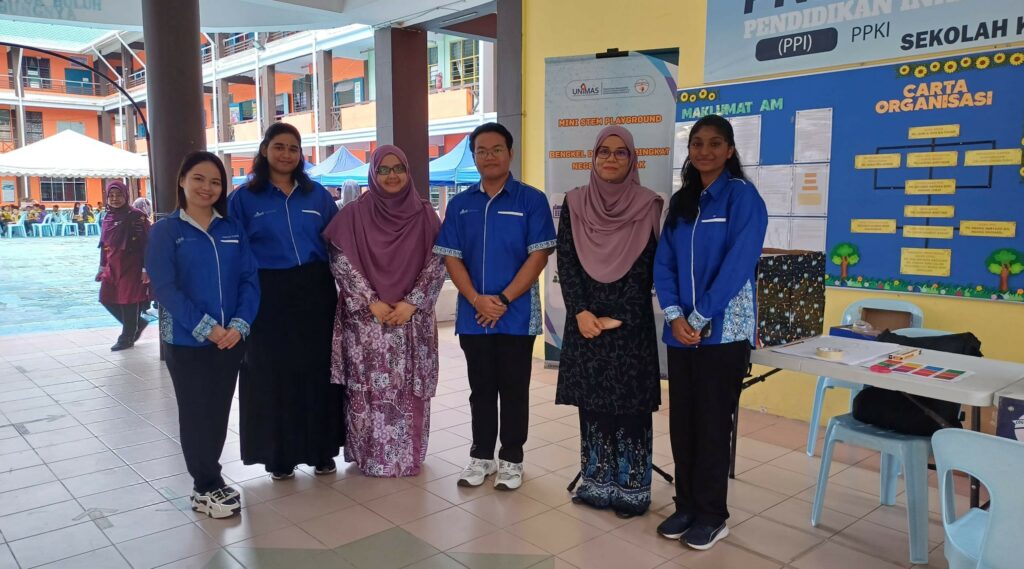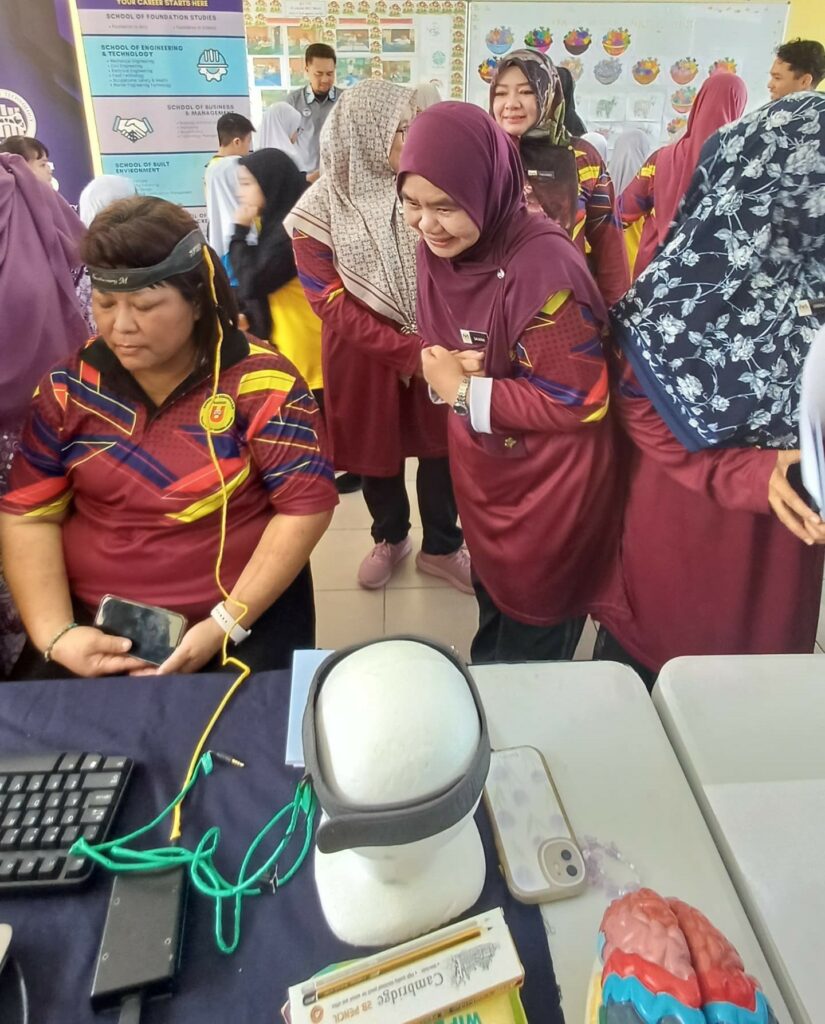Building foundational interest in science, technology, engineering, and mathematics (STEM) is most effective when introduced through early, hands-on experiences that connect abstract concepts to everyday life. The Mini STEM Playground x Bengkel Digital @ SK Sarikei, held on 18 June 2025, exemplifies this approach by transforming a rural primary school into a temporary hub for exploratory learning.
Jointly organised by Tabung Ekonomi Gagasan Anak Sarawak (TEGAS) and Kelab STEM Sarikei, the programme aimed to cultivate early digital literacy and critical thinking skills through hands-on activities. The event was officiated by Yang Berhormat Datuk Haji Len Talif Salleh, Deputy Minister for Urban Planning, Land Administration, and Environment Sarawak, and Chairman of TEGAS. Also present were Azryn Naim Zolkefli, Sarikei Resident Administrative Officer (representing the Sarikei Resident); Tuan Haji Udin Bujang, Chief Executive Officer of TEGAS; Lau Ngie Tung, Sarikei District Education Officer; and Jafri Pahari, Headmaster of SK Sarikei—reflecting broad institutional support for enhancing rural STEM education..

The programme featured a variety of interactive learning stations that merged play with purposeful learning. Representing Universiti Malaysia Sarawak (UNIMAS), the Faculty of Cognitive Sciences and Human Development (FCSHD) contributed an exhibition booth and a specially curated talk session. These components were coordinated by Dr Siti Atiyah Ali, lecturer in cognitive sciences and advisor to the Cognitive Neuroscience Club (CNC), with support from Dr Nurfaizatul Aisyah Ab Aziz, also from FCSHD. Together with CNC student volunteers, the team facilitated activities designed to introduce core neuroscience and digital concepts using accessible language and hands-on materials.

At the booth, children interacted with demonstrations and games that encouraged them to think about how the brain functions, how we perceive the world, and how digital systems mimic certain aspects of cognition. These activities were not only intended to entertain but also to initiate a basic understanding of scientific thinking. The use of simple visual stimuli, touch-based materials, and collaborative tasks allowed learners to construct meaning through direct experience—an approach supported by cognitive and developmental research.

In her talk, Dr Siti Atiyah introduced key functions of the brain in relation to everyday experiences, such as memory, attention, and sensory input. Importantly, the session also touched on the concept of artificial intelligence (AI), explaining how machines can be designed to perform tasks inspired by human cognition. The use of relatable examples helped demystify AI for a young audience, while also encouraging them to reflect on the role of technology in their daily lives.
The involvement of CNC members was central to the success of the UNIMAS contribution. Acting as peer facilitators, they guided younger participants through the activities, answered questions, and helped draw connections between observed phenomena and foundational scientific ideas. This student-led model not only benefited the school children but also provided a valuable experiential learning opportunity for the facilitators, reinforcing the university’s commitment to community engagement and practical education.

The initiative aligns with Sustainable Development Goal 4 (Quality Education) and Goal 9 (Industry, Innovation and Infrastructure) by bringing meaningful STEM learning into underserved rural contexts. It also supports Sarawak’s Digital Economy Strategy, which prioritises inclusive access to digital skills development from an early age.
More broadly, the programme demonstrated how collaboration among government agencies, educational institutions, and community stakeholders can advance educational equity. With the strong backing of TEGAS and Sarikei district leaders, the event positioned STEM not as an abstract discipline but as an accessible and enjoyable dimension of everyday learning.

For UNIMAS, this outreach reaffirmed its commitment to public engagement and translational education. The involvement of FCSHD illustrates how academic knowledge—particularly in cognitive and developmental sciences—can be applied meaningfully in community-based educational settings. Beyond delivering technical content, the programme promoted collaboration, creativity, and inclusivity—attributes vital not only for future scientists and engineers, but for all learners in a dynamic and interconnected world.
Ultimately, such outreach is a reminder that effective education is not confined to classrooms or institutions. It is most impactful when knowledge is shared, experienced, and reimagined within the communities it seeks to empower.